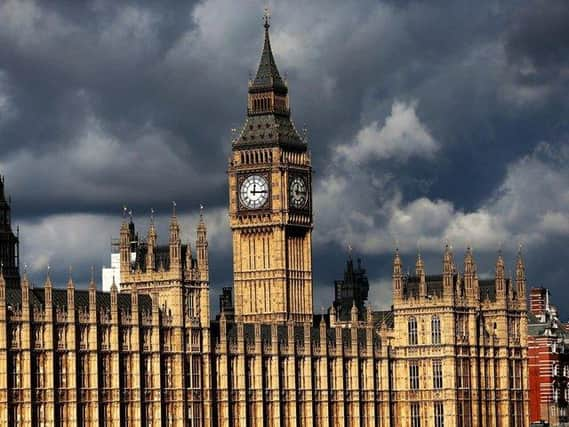Why Government must listen to the victims of modern slavery: Greg Wright


The anti-slavery charity Unseen, a Government-approved helpline, told BBC Radio 4’s File On 4 programme they heard from 109 potential victims exploited for personal or financial gain between January and March, twice as many as in the same period 12 months earlier.
But what happens to the victims when they are finally set free from their tormentors? Survivors of modern slavery need access to psychological assistance but many fear their needs are not being met, according to a new report.
Advertisement
Hide AdAdvertisement
Hide AdResearch from the University of Birmingham, the University of Nottingham, and the Survivor Alliance, funded by the Modern Slavery and Human Rights Policy and Evidence Centre and Arts and Humanities Council (AHRC) uncovered evidence that survivors of modern slavery experience significant mental health problems, with a “high prevalence” of cases of depression, anxiety and post-traumatic stress disorder (PTSD) reported.
Survivors raised the need for “holistic and culturally-appropriate” assistance with specialist services, noting that many providers weren’t familiar with the challenges faced by modern slavery survivors.
The report states: “In Europe, survivors are entitled to assistance with psychological needs through the Council of Europe’s Convention on Action against Trafficking in Human Beings (ECAT). Despite the Convention’s mandate, since 2013 a number of nongovernmental organisations (NGOs) have documented the difficulties that survivors
experience in accessing psychological support in the UK.”
Working with 90 survivors and 26 service providers across England and Wales, researchers found that, although the majority of participants had been able to access some form of help for their wellbeing, nearly half felt that support was inadequate.
Advertisement
Hide AdAdvertisement
Hide AdNancy Esiovwa from the Survivor Alliance, one of the authors of the report, said: “For me, going through the project where survivors of modern slavery were able to define what mental wellbeing means for them, was a game changer. It was also eye opening to see how differently survivors see wellbeing to those who support them. Whilst practitioners tend to address mental health challenges such as the lack of sleep or anxiety in relative isolation, survivors see a much wider picture, with issues such as uncertainty over their immigration status and lack of access to jobs or education having a big impact on their overall wellbeing.”
The testimony of modern slavery victims must be used to help formulate policy. To quote Caroline Bradbury-Jones, Professor of Gender Based Violence and Health at the University of Birmingham: “This latest report demonstrates how important survivors’ voices are in shaping the services they are accessing.”
By listening to victims, the authorities can devise an approach which enables them to take the first steps towards leaving their trauma behind.
Greg Wright is the deputy business editor of The Yorkshire Post